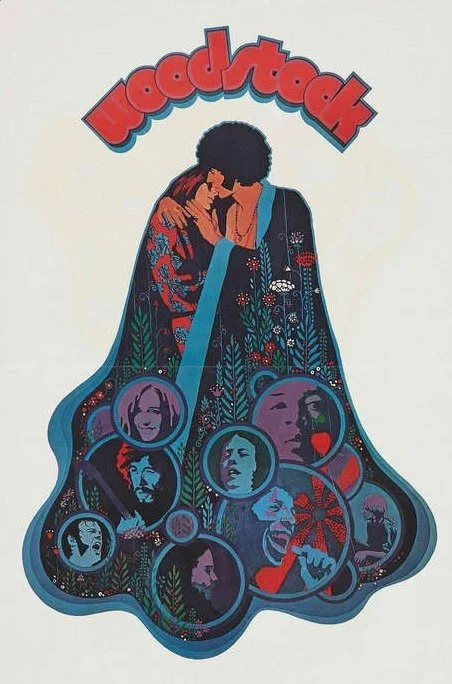Woodstock: Countercultural Response to American Politics of the 60s
Woodstock (1970), directed by Micheal Wadleigh, suggests that the festival spoke to a greater cultural phenomenon than just melodies of the 60s. Woodstock was an integral part of a greater political crusade toward counterculture. Woodstock occurred on August 15-18th, 1969, in Bethel, New York, on Max Yasgur’s dairy farm, and nearly 500,000 people attended. Wadleigh’s documentary serves as a time capsule; it’s evident how political Woodstock was.
In 1969, America dealt with the Vietnam War, Civil Rights Movement, and the draft, which were political issues that affected young Americans. These revolutionary events birthed the Counterculture Era, an anti-establishment movement that spurted new groups who opposed the “all-American” ideals such as commercialism, capitalism, war, societal standards, and 1950s norms. Counterculture groups include hippies', feminists, anti-war activists, and civil rights campaigners. These groups were heavily in attendance at Woodstock, which served as a place to spread messages of peace and personal freedoms through music. A highlight of Wadleigh’s documentary is an interview with a sanitation worker fixing a toilet. “I’m glad to do it for these kids. My son’s here, and I got one over in Vietnam too. He’s up in the DMZ right now flyin’ helicopters.” Some hippies walk by as he speaks about his sons, offering a pipe directly to the camera. This short scene encapsulates the types of people that Woodstock united.
Seventies cinema was an artistic reflection and reaction to sixties circumstances. The counterculture movement impacted impressionable people; this was manifested in filmmakers like Wadleigh and assistant director Martin Scorsese, who pushed boundaries of how films could be made. Unorthodox filmmaking methods were used, mirroring the attitudes of festival attendees. This crossbreed of techniques was received well at the 1971 Academy Awards; Woodstock won Best Documentary.
Wadleigh’s 70-person crew used bellicose filmmaking practices to capture Woodstock. Due to the massive attendance, the team had to sleep under the concert stage because they couldn’t get to their motel. They adapted to unpredictable circumstances, similar to those drafted in Vietnam. Wadleigh commented that he conceived his crew akin to handheld TV crews in Vietnam. The film utilized a variety of visual modes to showcase the 70 miles of raw footage. The documentary includes interviews with festival goers and employees, musical performances, communal activities, split screens, and fade shots to exhibit the Edenic experience.








